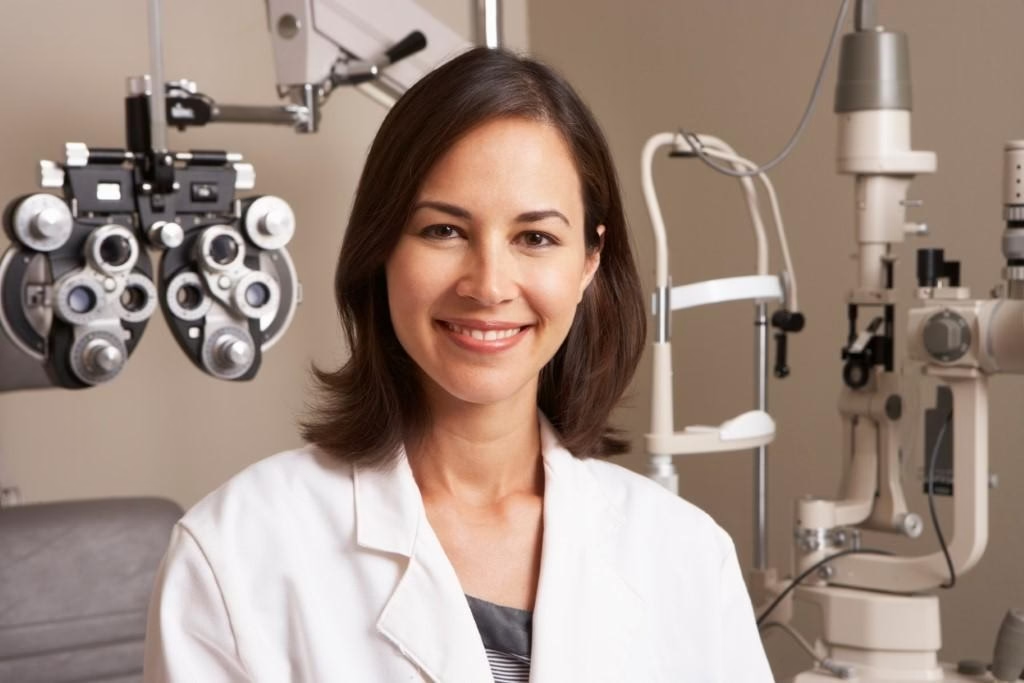The demand for quality eye care services is rising, and long-term visual health is becoming a priority for patients. An optometrist’s work is no longer limited to prescribing glasses and treating dry eyes. Technology, rising expectations, and new healthcare systems redefine success in this field.
Students, graduates, and experienced professionals ask: What does the future hold for an optometry career path? It’s evolving quickly, and opportunities extend beyond a traditional clinic setting.
Global Reach and Social Impact Will Increase
Vision inequality remains a major issue worldwide. Telemedicine will make it easier to reach underserved populations without requiring travel. International NGOs need optometrists for school screenings, mobile clinics, and blindness-prevention initiatives. Government organizations seek professionals who can shape public policy and health programs.
Optometrists who choose a socially focused path will find growing opportunities. The future isn’t just about private success. It also includes leadership in global vision, health, and accessibility.
Optometrists seeking global impact can gain experience through international training programs. Optometry internships abroad provide hands-on clinical work and vision screening in underserved communities. Cultural immersion reveals healthcare differences and prepares future professionals to serve diverse populations.
Technology Will Redefine Daily Practice
Artificial intelligence is already reading retinal scans faster than humans. Future optometrists will use AI insights and focus more on personalized treatment. Tele-optometry is also gaining traction as more patients expect flexible access. Secure platforms will allow screenings and follow-ups in rural areas without physical clinics.
Wearable health devices and smart eyewear will push the optometry career path into data-driven care. Smart lenses tracking eye pressure or glucose require professionals to interpret the data. Some practices may even print custom lenses on demand using 3D technology, cutting costs and delivery times. Contact lenses with digital features may support monitoring and enhanced vision.
Preventive and Holistic Vision Care Will Become Standard
Patients no longer see vision as a once-per-year concern. Screen-heavy lifestyles and rising myopia rates, especially in children, create long-term challenges. Preventive care is turning into a major focus of the optometry career path. Myopia management will become a core specialty using shaped lenses and atropine therapy.
Lifestyle-based eye care will also grow. Patients want advice on screen ergonomics, lighting, nutrition, and sleep. Treatment plans will look more like wellness programs than isolated exams. Optometrists will collaborate with specialists to link eye health and systemic diseases. Long-term relationships with patients will matter more than quick visits.
Scope of Practice Will Expand in Many Regions

Many regions allow optometrists to prescribe medications and manage ocular disease. The next step involves minor surgical procedures, injections, and co-management of LASIK surgery. Optometrists may also support laser surgeries. Evolving legislation will let optometrists treat diabetes and glaucoma without referrals.
Emergency eye care is another expanding area. Hospitals are overcrowded so optometrists may handle urgent eye infections or injuries. Medical eye care will become a key component of training and service delivery. In the years ahead, the optometry career path will look more medically advanced and less retail-oriented.
New Subspecialties and Career Tracks Will Appear
The traditional retail-versus-private-practice divide is fading. Neuro-optometry is growing as more athletes and older adults need help after concussions or strokes. Vision therapy for children with processing disorders or reading difficulties is gaining credibility. Low-vision rehabilitation will grow as aging patients need clinical care and assistive technology.
Corporate and occupational optometry is becoming a viable track. Aviation and tech companies want in-house vision specialists to improve workplace safety. Some optometrists will develop medical devices and visual performance tools. The optometry career path includes clinical, corporate, research, and rehabilitation-oriented directions. Full-scope optometry will allow professionals to blend multiple specialties in one career.
Business Models Will Evolve
Doctor of Optometry graduates who innovate will lead the way. Future optometrists won’t be limited to standard practices or large retail chains. Hybrid clinics blending medical care with premium eyewear are becoming more common. Membership and subscription models may replace single-visit billing to improve revenue and retention.
Partnerships with technology companies and startups will create consulting roles. Optometrists may guide the development of AR/VR tools, digital health platforms, or wellness apps. Mobile clinics will reach schools, worksites, and retirement communities, offering on-location services.
Personalization and Patient Experience Will Define Success
Data will drive more personalized prescriptions and eyewear recommendations. Doctors of optometry will tailor care plans to match each patient’s needs. Patients expect vision optimized for their work, lifestyle, and environment rather than basic ’20/20.’ Eye care professionals will use lifestyle data to create plans that improve comfort and performance.
Soft skills will become just as valuable as technical expertise. Patients want clear explanations and follow-up support. They value transparent pricing, digital access to exam results, and responsive communication.
Branding and online visibility will also matter in attracting patients. An optometry career path with strong communication will outperform one focused only on eye examinations.
Lifelong Learning Will Be Essential
New technology, treatments, and regulations change rapidly. Optometrists who commit to continuous learning will stay ahead. Future continuing education will include AI tools, specialty therapies, and digital diagnostics. Business, public health, and data science may appear in professional training.
Leadership and mentorship will also gain importance. Optometrists leading teams, setting protocols, or mentoring others will guide industry progress. Clinical training will support advancement into leadership roles.
Another focus will be recognizing and managing ocular disease at a higher level. Doctor of Optometry programs will continue to evolve with industry needs.
Final Thoughts
The optometry career path is changing, and with it, the expectations placed on optometrists. It will feature advanced technology and collaborative healthcare partnerships.
It will also reward adaptability and forward thinking. Those who adapt will build a career with impact, growth, and diverse opportunities to shape better vision care.






